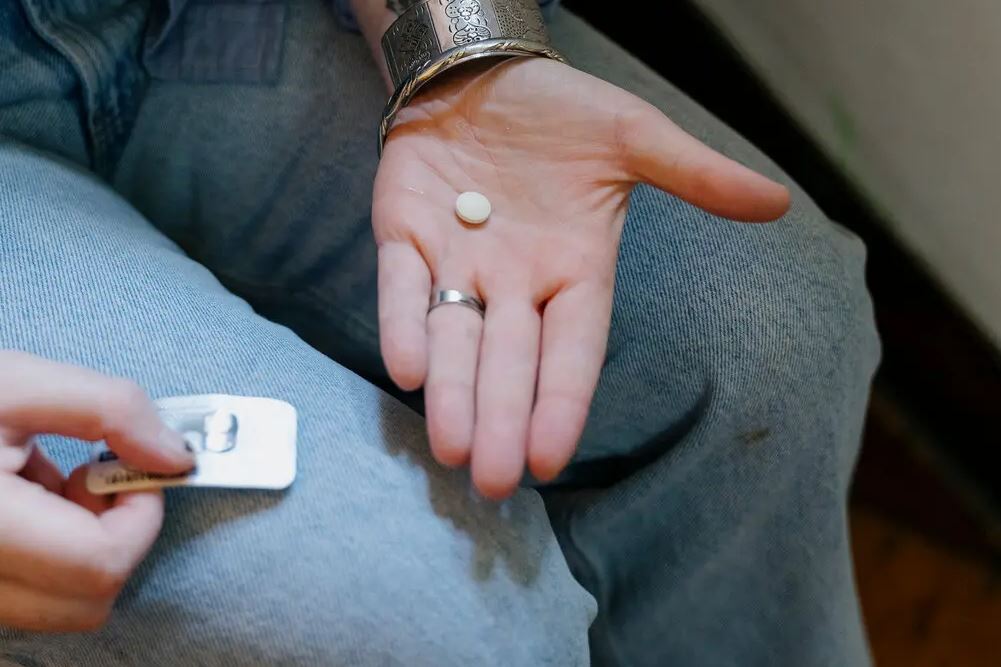On Tuesday, lawmakers in New York gained final approval to a bill that would make it lawful for physicians in the state to prescribe and ship abortion pills to women in states where the procedure is illegal.
The bill, along with similar legislation in six other Democrat-controlled states, has the potential to greatly increase access to medication abortion by enabling more people in states that prohibit abortion to terminate pregnancies at home rather than having to fly to areas where abortion is permitted.
The New York measure has been sent to Governor Kathy Hochul, who has expressed her support for the concept of a shield legislation. If a health care professional in New York who conforms with New York law gives abortion services through telemedicine to a patient in a state with an abortion prohibition, the courts and authorities in that state will not assist the other state in prosecuting, suing, or penalising the New York provider. On Tuesday night, the State Assembly approved it by a vote of 99 to 45 after the Senate had already approved it by a vote of 39 to 22 earlier in the month.
The states of Massachusetts, Colorado, Vermont, and Washington have all passed restrictions known as telemedicine abortion shield laws after the Supreme Court abolished the universal right to an abortion last year. However, the new laws in New York are anticipated to make a significant difference. Unlike their counterparts in states with shield laws, several New York clinicians have come forth openly to indicate that they intend to ship abortion medication to patients in all restricted states.
Dr. Prine has said that she and at least three other physicians will ship prescription medications to patients in all states where such measures are in place. Juniper Midwifery, a New York-based telemedicine business, has also shown interest in using the shield legislation to provide abortion drugs to patients in jurisdictions where such services are illegal.
There are presently 14 states where abortion is mostly illegal. However, the persons who actually take the abortion pills are seldom punished by the laws that outlaw abortion.
Mifepristone and misoprostol, a combination of two medicines, are used in more than half of all abortions performed in the United States today. The results of the study show that the procedure is safe and useful.
Tens of thousands of patients in places with bans or severe restrictions have used abortion medicines since the overturn of Roe v. Wade. Many people have gone to abortion clinics or mailed-order pill suppliers in states where the practise is permitted. However, many patients simply cannot afford the time and effort required to go.
Some patients have reported receiving prescription medications from international sources such as India or Europe through telemedicine programmes or internet pharmacies. Patients may have already passed the 12-week barrier the World Health Organisation recommends for utilising pharmaceutical abortion by the time the pills arrive, which may take anywhere from two weeks to three weeks. Doctors who practise under shield laws in the United States are mailing prescription drugs to patients within a few of days.
Fewer than ten doctors in states with shield laws are reported to have started sending patients in states with abortion restrictions medications despite the significant hazards involved. These service providers have moved with extreme caution.
If they could submit prescriptions to a pharmacy that would deliver the pills instead of stocking and sending the medicines themselves, several abortion providers have shown interest in employing shield legislation. If California follows through on a telemedicine abortion shield measure that passed the state Senate last month, women in the state would have that choice in the coming months. According to Honeybee Health’s co-founder and president, Jessica Nouhavandi, the new regulation would allow the California-based online pharmacy to expand its shipping services to all 50 states.
Legal problems, such as the risk of civil actions and challenges to a provider’s medical licence for unauthorised practise of medicine, may emerge when providers put their states’ telehealth shield laws to the test.
Both proponents and opponents of state shield laws argue that they weaken the foundations of interstate cooperation. When another state refuses to comply with an arrest warrant or court order issued by another state, it effectively impedes the implementation of the first state’s laws.
A doctor from New York, for instance, would need to get a Texas medical licence before seeing patients there. New York would typically assist Texas in initiating disciplinary actions via its medical board if the doctor had been practising without one. Without New York’s shield statute, the physician’s licence may be threatened by a decision made in another state.
Moreover, the Constitution of the United States sometimes mandates that states implement the civil judgements of another state. A family member of an abortion patient in Texas, for instance, might sue an abortion clinic in New York for the wrongful killing of the embryo or foetus. If the plaintiff were to win, New York may be required to pay any damages awarded to them under the Full Faith and Credit Clause of the Constitution.
It might be as difficult to get malpractice insurance. However, according to New York’s shield bill, clinics that follow the state’s abortion laws will not be dropped or punished by their insurance companies.
There have been no reported instances of practitioners using the abortion shield laws in telemedicine being prosecuted, sued, or otherwise subjected to legal action. Dr. Prine and others have said that although they are willing to serve as guinea pigs, they are also taking precautions to ensure their safety.
Most shield law practitioners report not going to places where abortion is illegal. Dr. Prine said she would go so far as to avoid connecting flights at an airport located in a state with severe regulations.

